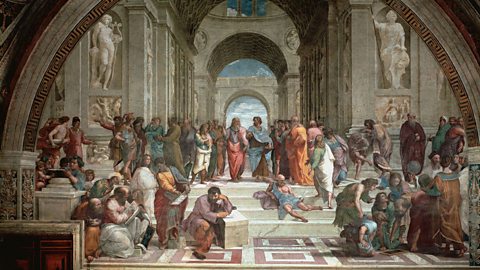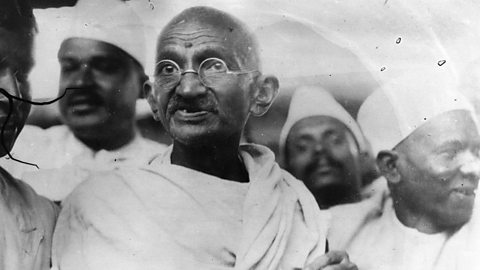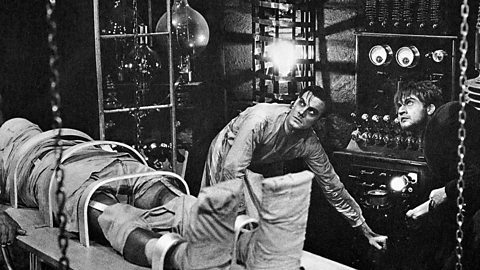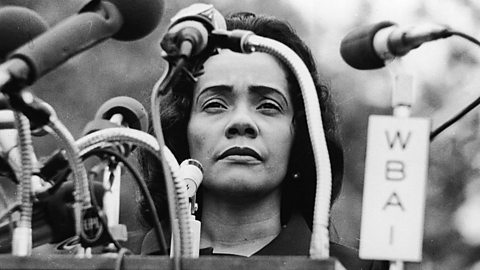Animal welfare, the environment and personal preference are just some of the reasons many of us might opt for a plant-based diet. But vegetarianism is by no means a new phenomenon.
In fact, long before we could post our latest Buddha bowls on Instagram, some famous faces in history went veggie. Ancient Greek philosophers, Romantic poets and civil rights activists all feature in the vegetarian influencers hall of fame.
Here are four famous veggies that may (or may not) surprise you.
Pythagoras

Pythagoras is a name that haunts teenagers across the UK preparing for their exams this summer. Although most famously known for his mathematical theorem, the philosopher and his followers influenced more than just geometry. A meat-free diet was once referred to as a Pythagorean diet.
There are a few reasons why Pythagoras is believed to have practiced vegetarianism. The most prominent being his teachings that all living beings had souls, including animals, and should be treated as kindred.
Unlike most modern vegetarians, he also banished beans from his bowl. One theory is he thought beans and humans were created in the same material, another says they considered fava beans to be connected to Hades, the Greek God of the Dead.
There is also an interpretation that when he said ‚ÄúAbstain from beans‚ÄĚ, he wasn‚Äôt speaking of diet at all, but politics. In ancient Greece beans were used as a ballot system, white beans for a yes vote, and black for no.

Gandhi

But Pythagoras was not the first to go veggie. Vegetarianism dates back a long time, especially in India. Ahimsa is the doctrine of refraining from harming any living being. It is an important idea in many religions originating in India, including Hinduism, Jainism and Buddhism. Ahimsa gained attention in the English-speaking world in the 20th century, when it featured in the teachings of Mahatma Gandhi.
Mahatma Gandhi’s mother introduced him to a strong Hindu ethic, with an emphasis on vegetarianism, religious tolerance, a simple lifestyle and non-violence from a young age. But even Ghandhi went through his rebellious teenage years.
Gandhi was a reckless teenager, he started drinking alcohol, eating meat and challenging his chastity. But when he was given the opportunity to study law in London, he found a home in the vegetarian movement and at the Theosophical Society, returning to the traditional Hindu practices of his childhood: no alcohol, sexual restraint, and vegetarianism.

Mary Shelley

Mary Shelley, previously Wollstonecraft, is another name that crops up in secondary school classrooms. Through her father, William Goodwin, Mary spent time in the company of many romantic 'influencers' that played a role in the spreading of vegetarianism in the Romantic era: John Frank Newton, Joseph Ritson and, of course, Percy Shelley, author of A Vindication of Natural Diet, whom she would go on to marry.
Mary and Percy were both vegetarians, and strong advocates for animal rights.
There is even an interpretation of Mary Shelley‚Äôs famous novel, Frankenstein, that Dr Frankenstein‚Äôs creature is a vegetarian. Despite not being a usual trait of a monster, the creature establishes his veggie diet in one of his (many) emotional speeches: ‚ÄúMy food is not that of man; I do not destroy the lamb and the kid to glut my appetite; acorns and berries afford me sufficient nourishment‚ÄĚ.

Coretta Scott King

Coretta Scott King was an American author, activist and civil rights leader. She fought for racial equality, the Women’s Movement, opposition to apartheid and LGBT rights.
After her husband, Martin Luther King Jr., was assassinated in 1968, she founded the King Center and campaigned for Martin Luther King Jr Day to become a national holiday on his birthday. King’s work went far beyond her efforts to preserve her husband’s legacy: her activism was lifelong.
Dexter Scott King, the son of Coretta Scott King and Martin Luther King Jr, is a civil rights activist in his own right and an advocate for veganism and animal rights. Dexter was introduced to vegetarianism by Dick Gregory, who had become vegetarian in 1965 when he extended the nonviolence of the Civil Rights Movement to the treatment of animals. In an interview in 1995, Dexter proudly told the Vegetarian Times that his mother had also embraced a vegan diet.
This article was published in May 2019
Vegetarians and vegans
Vegetarians and vegans live by specific dietary guidelines. Find out more with this ¬ť∂Ļ‘ľŇń Economics: Food and Nutrition guide (CCEA).

How long does it take to be marathon-ready?
Could a complete newbie be ready to run 26.2 miles before 2021?

Four jobs that could save the planet
The stories of four people who do their bit for our ecological future every time they clock in for a shift.
